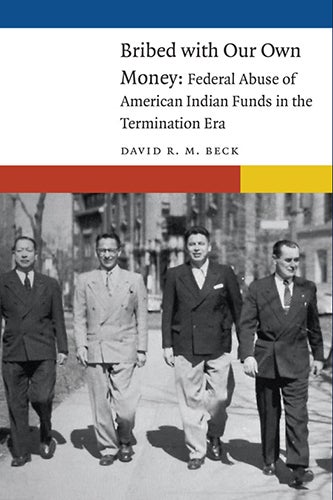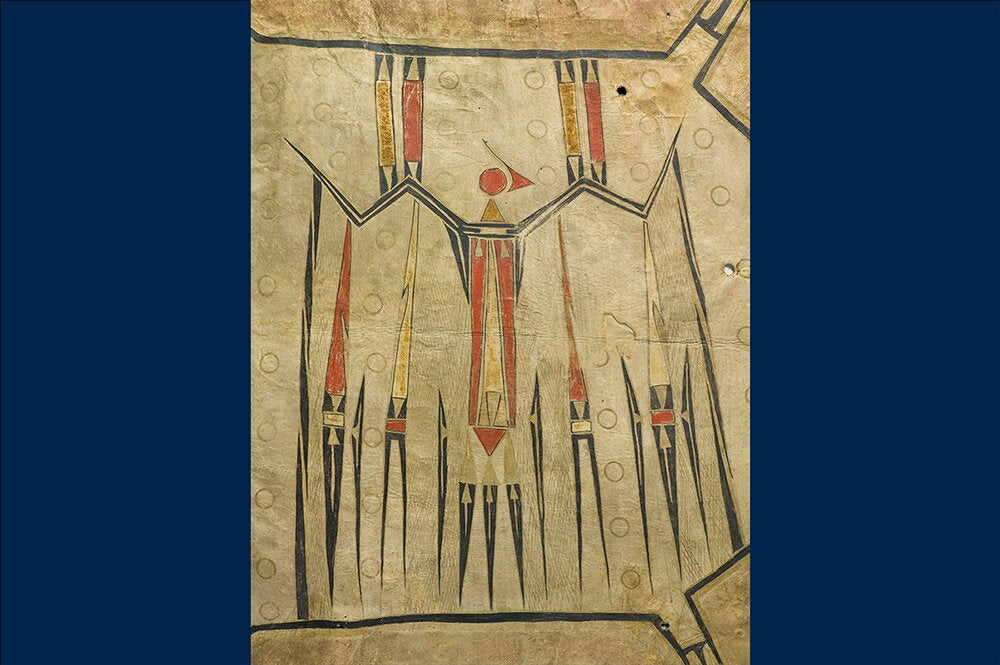

Federal policy toward Native American tribal nations in the first half of the 20th century sought to end the government’s legal and political relationship with tribes. A new book by history professor David Beck looks at one aspect of termination policy — bribery.
“Bribed With Our Own Money: Federal Abuse of American Indian Funds in the Termination Era” examines how officials coerced tribal nations to accept termination by threatening to withhold money owed them by the federal government. Beck found that such coercion was a government policy, with both Congress and the interior department advocating using the money owed to tribes to force the end of the government’s relationship with them.
For example, in 1954, Congress appropriated money owed to the Menominee Indian Tribe of Wisconsin, which it won in a lawsuit over timber mismanagement after the federal government clear-cut tribal forests. Congress forced the tribe to accept termination of its federal trust relationship with the government as a condition of being paid the money it won in the lawsuit.
“Termination was foisted onto the tribes as a quid pro quo for the payments that were due to them,” Beck wrote of such tactics.
Federal Indian policy established a trust or fiduciary relationship with tribes under which the government is to provide protection and ensure the survival of the tribal nations. Among the government’s responsibilities are overseeing the governance of reservation lands and managing resources such as forests, minerals and game.
“It’s a legal as well as a moral responsibility. Almost from the very beginning, the federal government has been trying to get out from under that responsibility,” Beck said.
Beginning in the 1920s, tribes and the government sought to create greater self-governance within tribal communities. From the government’s perspective, this meant ending its trust relationship with tribes, Beck said. In 1953, the Termination Act gave Congress permission to pass laws terminating its trust relationship with specific tribal nations, which it immediately began doing, he said. Termination ends the political and legal relationship between the tribes and the government and disestablishes reservations.
Federal officials presented termination as advancing the “freedom” and “emancipation” of tribes.

“They tried to couch it in language that was euphemistic, with terms that were supposed to provide tribes with the idea that they had this great opportunity to move into the modern world, in a way that was defined by federal officials and not by tribal leaders,” Beck said.
In his book, Beck looks at the time period leading up to the Termination Act. He uses six case studies to illustrate how the government used tribal monies to try to force termination, with varying success.
In a section of the book on “Forests and Termination,” Beck wrote about the Menominee Indian Tribe of Wisconsin and the Klamath of Oregon, both tribes with vast forest resources. The Klamath were promised payments to individuals for their forest land. Federal officials considered the two tribal nations model cases for termination, and in 1954 laws were passed to end their relationship with the U.S., Beck wrote.
In “Dams and Termination,” Beck wrote about the Three Affiliated Tribes of Fort Berthold in North Dakota and the Seneca Nation of Indians of New York, both of which were owed large payouts for loss of reservation land to flooding due to newly built dams. Both avoided termination after a long fight that impacted their abilities to revitalize their communities and recover from their losses, Beck wrote.
A final section of the book, “Lands and Termination,” describes the situations of the Colville Confederated Tribes of Washington and the Mixed-Blood Utes of Utah. Both tribes won lawsuits for compensation for lands taken from them. The Utes’ lawsuit led to a split in the tribe based on amount of Native American blood of individual members. Those of full blood avoided termination by letting the government end its relationship with those of mixed blood. The Colville tribes were split on the question of termination because a portion wanted their land returned to them, but ultimately they avoided termination.
The terminations of the Menominee, Klamath and Mixed-Blood Utes “caused lasting trauma to individual Indians and created dysfunction in tribal governance, economics and social structures,” Beck wrote.
“One way to view the termination policy is as one more brutal attack in a centuries-long assault on Indigenous rights to their lands, their resources, their cultural heritage and their self-determination. Another way is to view it within the context of the U.S. legal system that established a federal fiduciary responsibility to America’s Indigenous nations. The termination efforts that intensified in the 1940s are reflective of a century and a half of actions contradictory to the protections the law theoretically instituted for U.S. dealings with Indian nations,” he wrote.
Eventually, those fighting termination were able to convince legislators that termination would be more costly to the government than keeping the trust relationship intact. The Civil Rights movement also increased awareness of how minority populations in the U.S. had been mistreated, but not before more than 100 tribes were terminated, Beck said.
The Menominee tribe later brought another lawsuit over hunting and fishing rights, and was able to reverse its termination and regain federal recognition, he said.
The book’s conclusion focuses on “the lasting specter of termination.” While Congress has never repudiated termination, tribes now have much more authority and a stronger relationship with the federal government, thanks to new laws that empowered tribal governments, Beck said.


